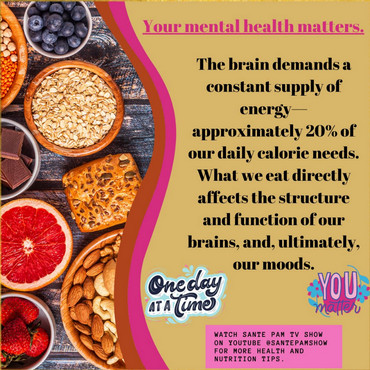
Your mental health matters - The brain
Depression can increase or decrease appetite, and negative mood states have been shown to stimulate a preference for foods high in sugar, fat, and/or salt.
It resulting in lower-than-recommended intakes of brain-essential nutrients such as B vitamins, zinc, folate, and magnesium, which has been inversely associated with depressive disorders.
Consuming a whole-food diet consisting of higher intakes of vegetables, fruits, seafood, whole grains, lean meats, nuts, and legumes, with avoidance of processed foods is recommended. Fatigue and laziness associated with depression may decrease motivation to engage in healthful dietary habits, cook, or grocery shop.
Start paying attention to how eating different foods makes you feel — not just in the moment, but the next day. Try eating a “clean” diet for two to three weeks — that means cutting out all or most processed foods and sugar. See how you feel. Then slowly introduce foods back into your diet, one by one, and see how you feel.
